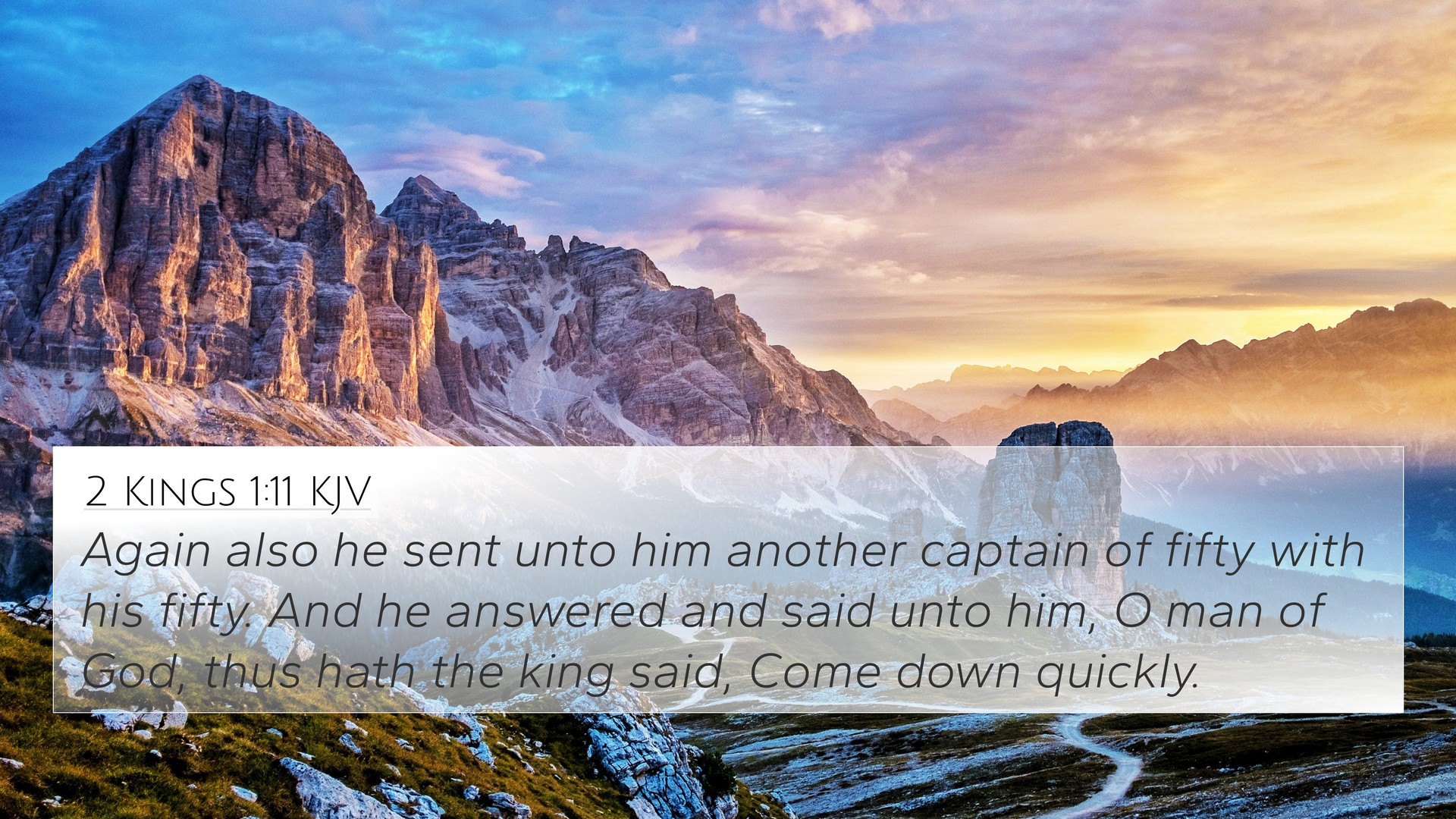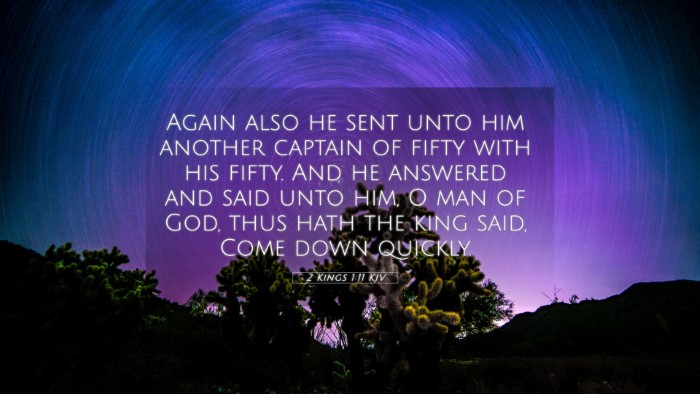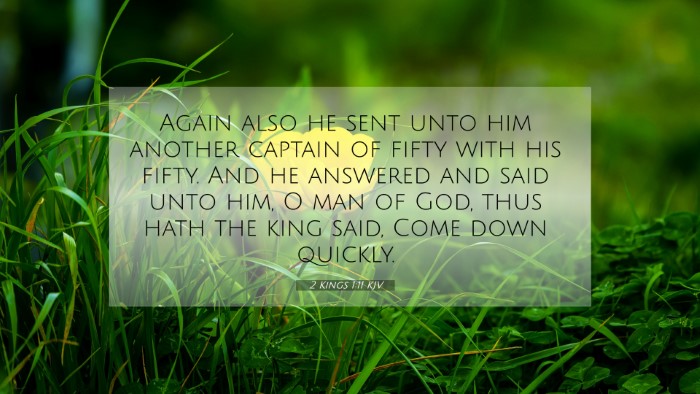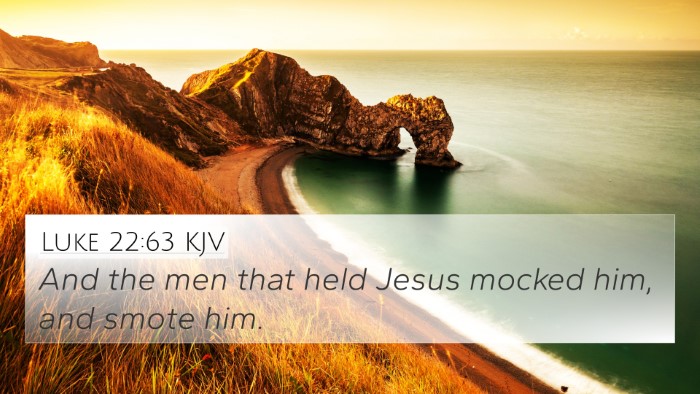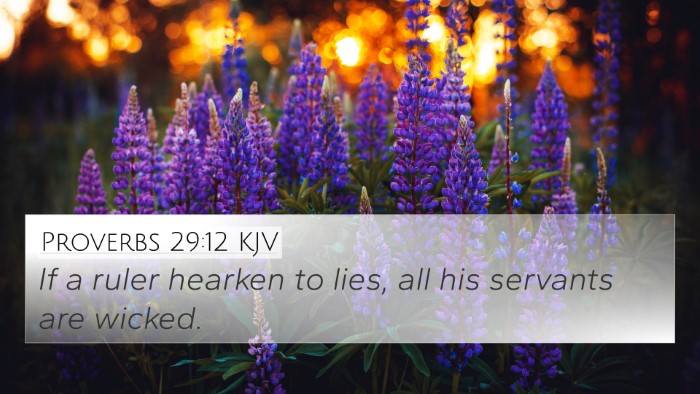Old Testament
Genesis Exodus Leviticus Numbers Deuteronomy Joshua Judges Ruth 1 Samuel 2 Samuel 1 Kings 2 Kings 1 Chronicles 2 Chronicles Ezra Nehemiah Esther Job Psalms Proverbs Ecclesiastes Song of Solomon Isaiah Jeremiah Lamentations Ezekiel Daniel Hosea Joel Amos Obadiah Jonah Micah Nahum Habakkuk Zephaniah Haggai Zechariah Malachi2 Kings 1:11 Similar Verses
2 Kings 1:11 Cross References
Again also he sent unto him another captain of fifty with his fifty. And he answered and said unto him, O man of God, thus hath the king said, Come down quickly.
Uncover the Rich Themes and Topics of This Bible Verse
Listed below are the Bible themes associated with 2 Kings 1:11. We invite you to explore each theme to gain deeper insights into the Scriptures.
2 Kings 1:11 Cross Reference Verses
This section features a detailed cross-reference designed to enrich your understanding of the Scriptures. Below, you will find carefully selected verses that echo the themes and teachings related to 2 Kings 1:11 KJV. Click on any image to explore detailed analyses of related Bible verses and uncover deeper theological insights.
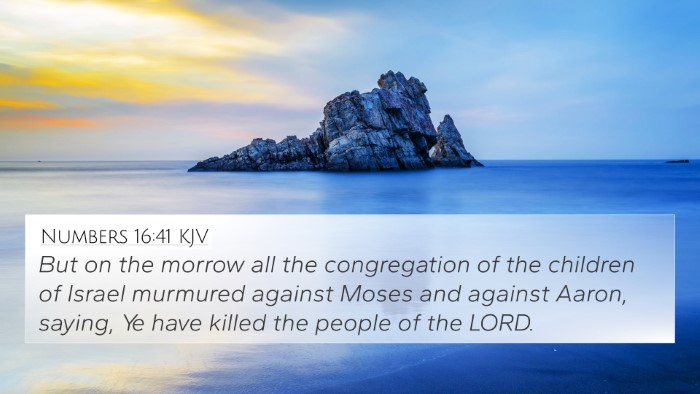
Numbers 16:41 (KJV) »
But on the morrow all the congregation of the children of Israel murmured against Moses and against Aaron, saying, Ye have killed the people of the LORD.
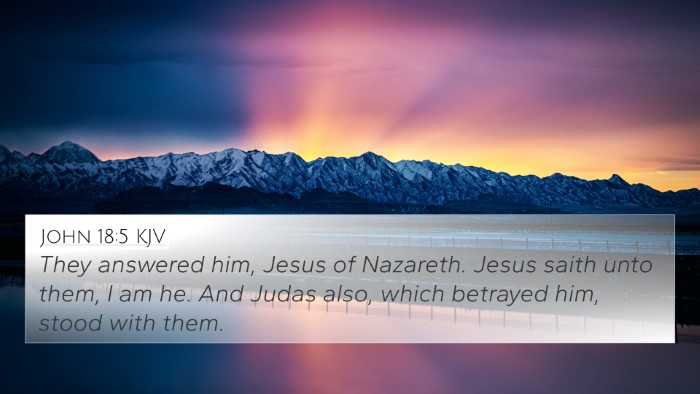
John 18:5 (KJV) »
They answered him, Jesus of Nazareth. Jesus saith unto them, I am he. And Judas also, which betrayed him, stood with them.
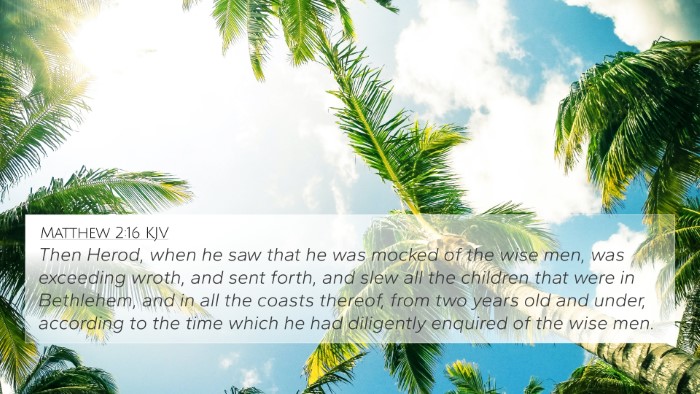
Matthew 2:16 (KJV) »
Then Herod, when he saw that he was mocked of the wise men, was exceeding wroth, and sent forth, and slew all the children that were in Bethlehem, and in all the coasts thereof, from two years old and under, according to the time which he had diligently enquired of the wise men.
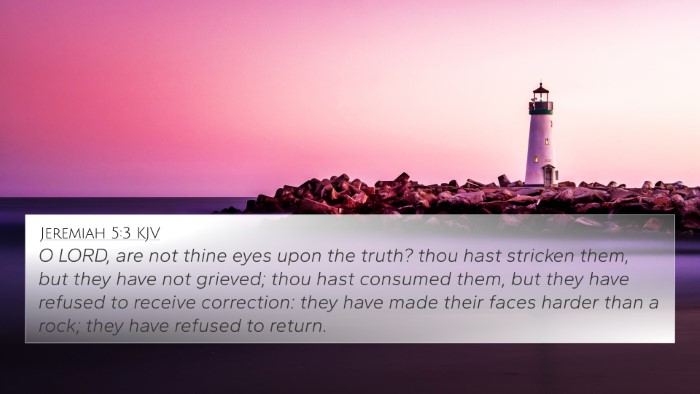
Jeremiah 5:3 (KJV) »
O LORD, are not thine eyes upon the truth? thou hast stricken them, but they have not grieved; thou hast consumed them, but they have refused to receive correction: they have made their faces harder than a rock; they have refused to return.
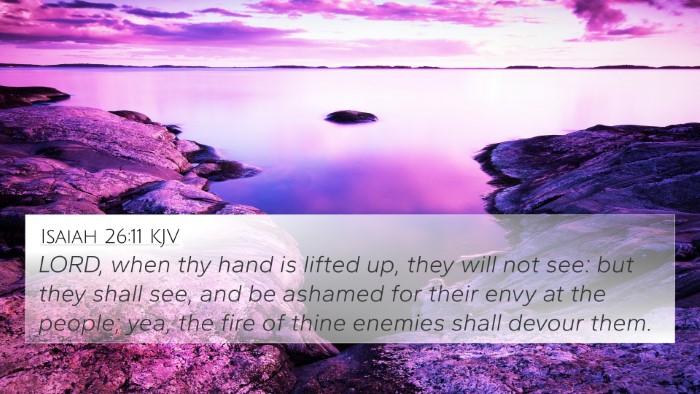
Isaiah 26:11 (KJV) »
LORD, when thy hand is lifted up, they will not see: but they shall see, and be ashamed for their envy at the people; yea, the fire of thine enemies shall devour them.
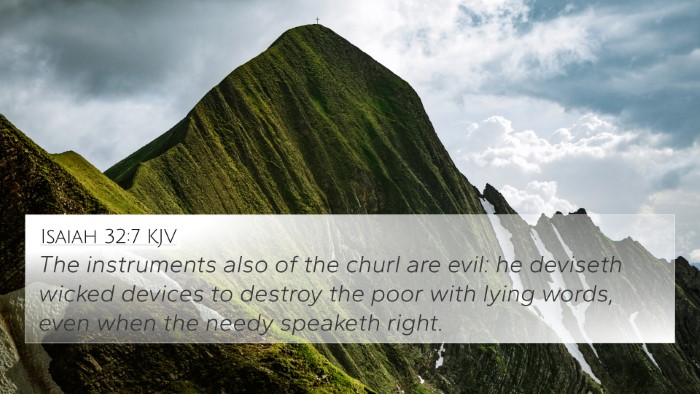
Isaiah 32:7 (KJV) »
The instruments also of the churl are evil: he deviseth wicked devices to destroy the poor with lying words, even when the needy speaketh right.
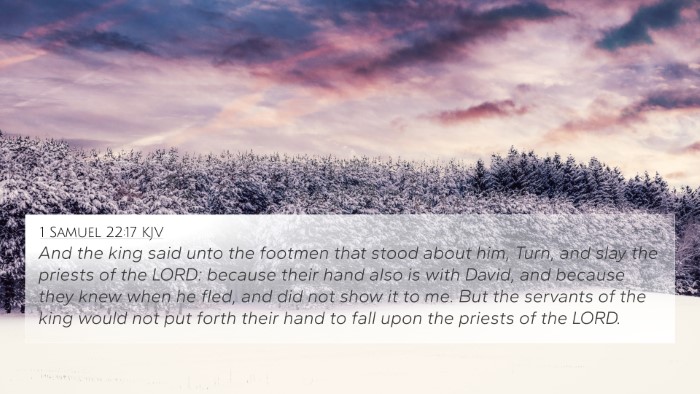
1 Samuel 22:17 (KJV) »
And the king said unto the footmen that stood about him, Turn, and slay the priests of the LORD: because their hand also is with David, and because they knew when he fled, and did not show it to me. But the servants of the king would not put forth their hand to fall upon the priests of the LORD.

1 Samuel 6:9 (KJV) »
And see, if it goeth up by the way of his own coast to Bethshemesh, then he hath done us this great evil: but if not, then we shall know that it is not his hand that smote us: it was a chance that happened to us.
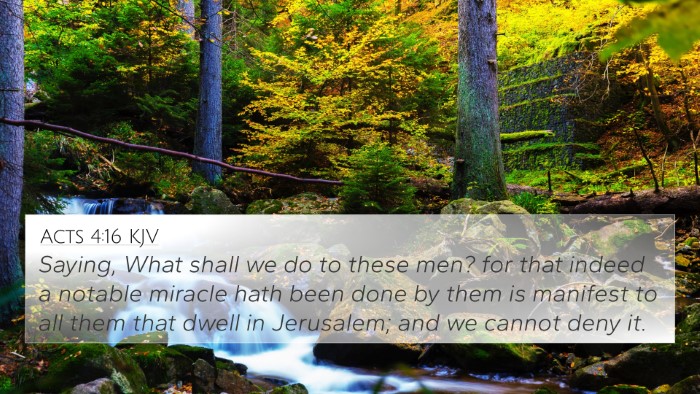
Acts 4:16 (KJV) »
Saying, What shall we do to these men? for that indeed a notable miracle hath been done by them is manifest to all them that dwell in Jerusalem; and we cannot deny it.
2 Kings 1:11 Verse Analysis and Similar Verses
Understanding 2 Kings 1:11
Verse: 2 Kings 1:11 - "Again also, he sent unto him another captain of fifty with his fifty. And he answered and said unto him, O man of God, thus hath the king said, Come down quickly."
Summary of Meaning
This verse highlights a crucial encounter between the king of Israel, Ahaziah, and the prophet Elijah. The king's command to Elijah signifies his authority but also implies his desperation and unwillingness to recognize Elijah's divine mission, resulting in a rejection of God's authority.
Commentary Insights
- Matthew Henry: This commentator notes that the captain's approach to Elijah demonstrates the dangers of presumption and the ignorance of the power of God. The king's repeated commands indicate a lack of understanding of Elijah's role as a prophet and a servant of God.
- Albert Barnes: Barnes emphasizes the captain's acknowledgment of Elijah as "man of God," highlighting a mixed recognition of the prophet's authority while still vainly trying to enforce the king's wishes.
- Adam Clarke: Clarke adds that this encounter illustrates the tension between human authority (the king) and divine authority (Elijah), showcasing the futility of forcing God's will and the power of a true prophet over worldly kings.
Cross-References and Thematic Connections
This verse connects with several other Scriptures, providing a deeper understanding of its themes:
- 1 Kings 18:17-18: The confrontation between Elijah and Ahab, which shows the continued conflict between the prophets and royal authority.
- 1 Kings 19:1-2: Queen Jezebel's threat to Elijah, further establishing the enmity between the prophetic voice and the royal house of Israel.
- 2 Kings 1:10: Elijah’s previous response to the first captain, indicating the power of his words and further illustrating God's authority through his prophet.
- Matthew 10:20: Jesus affirms that the Spirit of God speaks through His followers, relating to the authority Elijah has in proclaiming God's will.
- Luke 9:54-56: Jesus' discussion of James and John seeking to call down fire reflects the spirit of Elijah, serving as a reminder of how the prophet’s fate reflects on Jesus’ mission.
- 2 Timothy 3:12: "Yea, and all that will live godly in Christ Jesus shall suffer persecution," linking Elijah’s story to the faithful perseverance required of all believers.
- Hebrews 11:32-34: This passage discusses the prophets and their trials, correlating Elijah's experiences with the broader narrative of faithful believers.
Tools for Cross-Referencing Biblical Texts
Utilizing cross-referencing can enhance the study of 2 Kings 1:11. Here are some recommendations:
- Bible Concordance: Helps locate other verses by keywords.
- Cross-Reference Bible Study Guide: Offers structured analysis for connecting themes and topics.
- Bible Reference Resources: Serves as a foundation for discovering related verses and concepts consistently.
Conclusion
The encounter in 2 Kings 1:11 acts as a pivotal example illustrating the tension between the authority of God as represented by Elijah and the royal authority embodied by King Ahaziah. As one studies this verse, using cross-referencing tools and commentary insights can deepen understanding, highlight Biblical parallels, and enrich one's grasp of the inter-Biblical dialogue present throughout the Scriptures.
